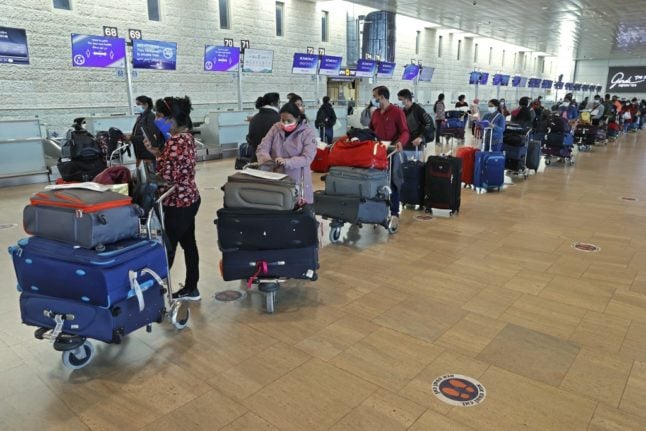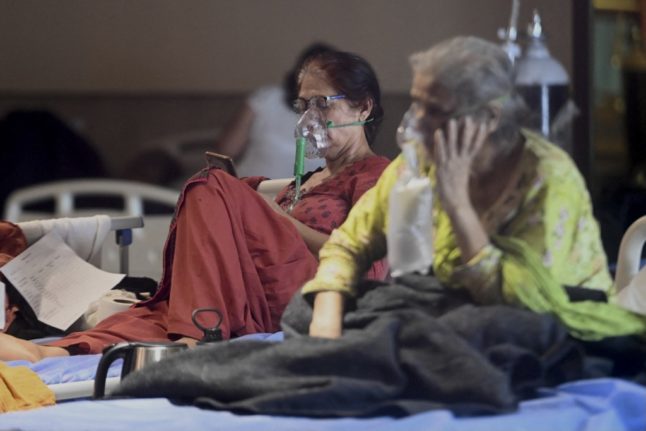The group, including six women, were sent from the eastern state to New Delhi for breaching restrictions on their tourist visas, police said, though officers were unable to confirm whether they would be deported from India.
“Nine of the ten French nationals had tourist visas but they were found involved in activities of an NGO (non-government organisation),” Bihar additional director general of police Kumar Rajesh Chandra told AFP.
R.K. Singh, the home ministry’s senior civil servant in New Delhi, was quoted by the Hindustan Times as saying the French group “were working for an NGO believed to have links with frontal organisations of Maoists.”
Police officials who declined to be named told AFP the group were involved with Ekta Parishad, a charity that says it is a non-violent activists’ movement working for local people’s land, water and forest rights.
“We strongly suspect that they (the French nationals) visited Maoist strongholds in Jamui and Simultala and held meetings deep in the forests,” a police official said.
Ekta Parishad’s coordinator Pardip Priyadarshi told AFP that it rejected all charges of being linked to the rebels.
“We have nothing to do with Maoists activities in Bihar or elsewhere, we strongly deny the police version,” he said.
The presence of foreigners in areas of India controlled by the Maoists is sensitive after two Italian men were abducted last month by the rebels in the state of Orissa. They were both later released unharmed.
India’s Maoist guerrillas, who claim to be fighting for the rights of poor tribal minorities and farmers, have waged a decades-long battle across central and eastern states to overthrow state and national authorities.
They often target police and government officials in deadly ambushes and mine attacks. In their latest major strike, they killed 11 policemen in a landmine blast in Maharashtra last month.
The French group are thought to have arrived in India earlier this month and travelled to Bihar after visiting south India. One was reported to be on an employment visa.
They were detained on Saturday and taken under police escort to the state capital Patna on Sunday, from where they flew to New Delhi.
The Hindustan Times quoted police as saying that the group denied knowledge of Ekta Parishad’s alleged links to the Maoists and said they were heading to Bodh Gaya, a Buddhist tourist attraction in Bihar.
Bihar’s deputy inspector general of police Paras Nath told AFP that it was not up to state authorities to decide whether they would be deported from India.
The French embassy and Indian home ministry in New Delhi declined to comment.



 Please whitelist us to continue reading.
Please whitelist us to continue reading.
Member comments